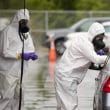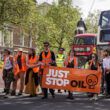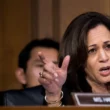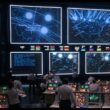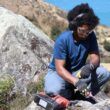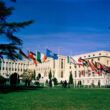Lynn Eden Armageddon on the Capitol steps
October 17, 2012
I remember some things from the era of the Cuban Missile Crisis.
I remember turning 13 that year. I remember the 1962 hits "Duke of Earl," "Johnny Angel," "I Can't Stop Loving You," "Big Girls Don't Cry," and the awful "Monster Mash," which was No. 1 in late October. I remember thinking Ricky Nelson was very handsome, and Fabian even more so. I remember that our family did not have a television, even though everyone else did.
I remember my father, in a friendly argument with a close friend before the election in 1960, saying that he would not vote for Kennedy because Kennedy would invade Cuba, and as it turned out, my father did vote for Kennedy, and the United States was involved with the Bay of Pigs invasion the following spring.
I remember listening on live radio on a Friday evening — it was, in fact, March 2, 1962, almost a year after the Bay of Pigs and close to my birthday — as President Kennedy explained to the American people why, in response to the Soviets breaking the nuclear test moratorium begun in 1958, Kennedy would resume limited nuclear testing. I remember that both of my parents at first were deeply opposed to what he was saying. And how, over the course of Kennedy's speech, we all found ourselves persuaded that he might be right.
I remember being on a city school bus on November 22, 1963, in complete shock with my classmates, as word spread that the president had been assassinated.
But I have only one memory of the Cuban Missile Crisis itself, and it's a memory from shortly after it ended. My parents had been out of town at a meeting of the National Lawyers' Guild, and when they returned, they told us that I.F. Stone had addressed the meeting. I.F. Stone's Weekly was one of the few things my father read cover to cover. Stone had said that he had been in the Capitol during the crisis, and that as he walked down the steps, he thought it might really be his last night on Earth.
Lynn Eden
Science and Security Board
Armageddon on the Capitol steps
